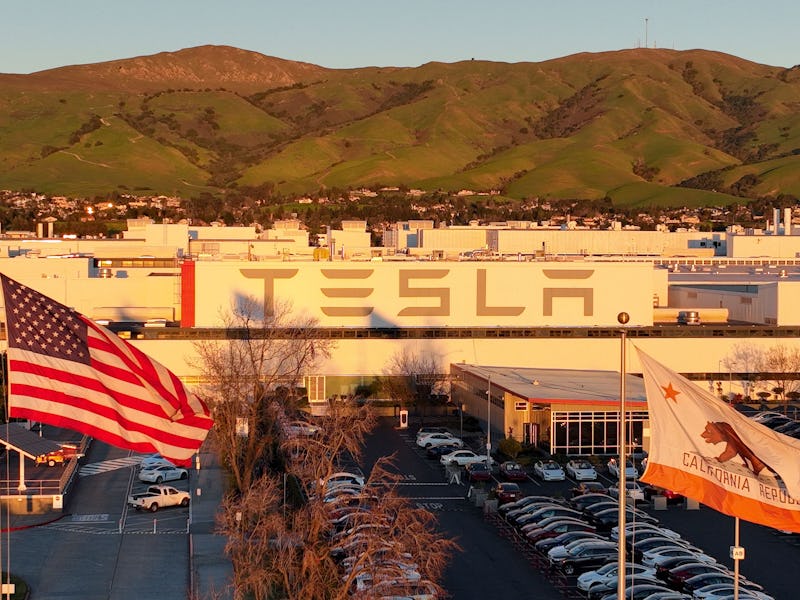California vs Tesla: Discrimination lawsuit alleges racist practices at EV factory
Tesla has been hit with a lawsuit from California’s Department of Fair Employment and Housing.

A lawsuit in California alleges discriminatory labor practices are rife at electric car company Tesla’s factory in the state. On February 9, the state’s Department of Fair Employment and Housing filed a lawsuit alleging that there were “many complaints of rampant racism unchecked for years.” Over the course of a three-year investigation, the department received “hundreds” of complaints relating to these issues.
Tesla hit back at the allegations on the same day California filed suit, declaring it “misguided.”
California’s lawsuit is the latest in a series of claims suggesting Tesla practices unfair labor standards and fosters discrimination. The new suit comes in the wake of an October 2021 judgment, the company was ordered to pay elevator operator Owen Diaz $137 million following claims of racist treatment at the automaker. Tesla, which has appealed the decision, writes in its response that “the Tesla of 2015 and 2016 (when Mr. Diaz worked in the Fremont factory) is not the same as the Tesla of today.” California’s DFEH, however, seems to disagree.
The suit states: “Segregation at the Fremont factory, along with the absence of Black and/or African Americans in leadership roles, has left many complaints of rampant racism unchecked for years.”
Speaking to Bloomberg Law, legal expert Anthony Oncidi, co-chair of the Labor & Employment Law Department at Proskauer Rose LLP (not involved in this suit), says it seems CEO Elon Musk’s “first instinct is to fight” and the latest lawsuit “may not be an exception.”
Want to find out more about the latest going on at Tesla? Subscribe to MUSK READS+ for exclusive interviews and analysis about spaceflight, electric cars, and more.
Tesla discrimination lawsuit: The claims
The DFEH’s investigation, conducted over the course of a three-year investigation started in 2019, alleges, among other things, that African American employees at Telsa were assigned to less-desirable positions than their non-African American peers and subjected to racial abuse. Further, the company allegedly retaliated against these employees when they complained to their supervisors, and the company failed to take all reasonable steps to prevent unlawful discrimination.
The lawsuit claims that “throughout the day, every day,” employees were subjected to racial slurs, and racist graffiti was written on walls and benches at the factory. Employees on the factory floor itself were allegedly segregated along racial lines, and African American employees were allegedly assigned to more physically demanding roles than their non-African American peers.
The lawsuit further alleges that, as early as 2012, African American workers complained to their supervisors about the mistreatment. Those that complained — and others associated with the complainants — were allegedly denied bonuses, falsely accused of being late to work, and placed in less desirable roles, according to the filing.
Tesla is accused of racial discrimination at its factory.
Tesla discrimination lawsuit: What has Tesla said?
In a strongly-worded blog post published in the hours before the court filing was made public on February 9, Tesla describes the lawsuit as “misguided.”
It claims that the lawsuit stems from a three-year investigation that, during its course, did not flag any concerns about contemporary work practices at Tesla to Tesla itself. The complaints instead focus on alleged misconduct between 2015 and 2019, according to the Tesla post.
It also claims that, over the last five years, the DFEH was asked 50 times by individuals to investigate the company over claims of discrimination or harassment. The department closed each investigation without accusing Tesla of misconduct.
“It therefore strains credibility for the agency to now allege, after a three-year investigation, that systematic racial discrimination and harassment somehow existed at Tesla. A narrative spun by the DFEH and a handful of plaintiff firms to generate publicity is not factual proof.”
The state’s department, however, responds to this in the filing:
“Contrary to claims made in Tesla’s public blog one day after the mediation that DFEH ‘has never once raised any concern about current workplace practices at Tesla,’ DFEH and Tesla’s own workers throughout the state – not just production associates from the Fremont factory from 2015-2019 – have raised concerns about race harassment, discrimination, and retaliation for years. They still do, as complaints were filed as recently as 2022.”
In answer to Tesla’s claim that the department closed relevant investigations on 50 occasions, it responds:
“It is unclear which administrative complaints Tesla refers to, but many resulted in an immediate request for a right to sue.”
Reuters notes that the department can aim for the same level of relief as employees that file complaints.
SUBSCRIBE TO MUSK READS+, A PREMIUM NEWSLETTER THAT COVERS THE WORLDS OF ELON MUSK, SPACEX, TESLA, AND EVERYTHING BETWEEN.
This article was originally published on